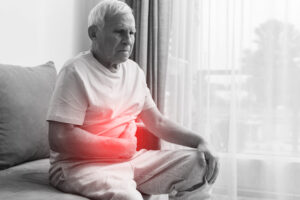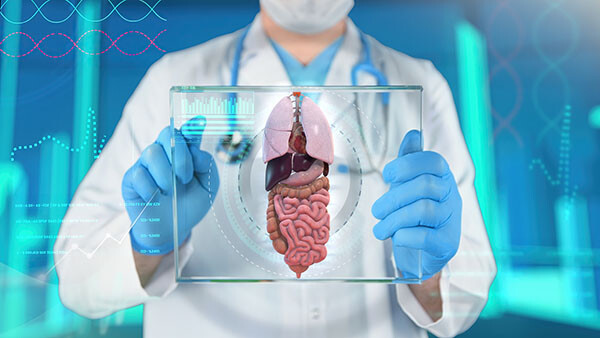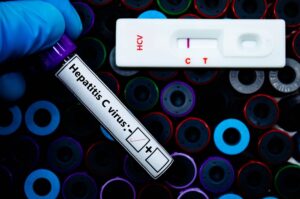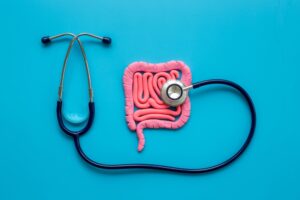
Signs of Stomach Ulcers
Stomach ulcers are open sores that develop on the lining of the stomach or small intestine, but heartburn is caused when stomach acid flows back into the esophagus.

The COVID-19 pandemic has triggered dramatic changes throughout everyday life — and in the medical community as well. Not only are providers across the country postponing elective procedures, but many are also encouraging people to avoid in-office appointments to reduce their risk of exposure to this highly contagious coronavirus.
But what do you do if you still need health care? Fortunately, Telehealth can help.
Telehealth — or telemedicine — is a healthcare solution that allows you to meet with your doctor virtually instead of going to the office. Our 100% HIPAA-compliant system uses a two-way, high definition video, so we can talk face-to-face as if we’re in the same room together.
With Telehealth, you can also:
This streamlined approach originally evolved to help expand medical care to men, women, and children living in remote areas. Today, 76% of hospitals use Telehealth technology, and US employers could save as much as $6 billion a year by making telemedicine technology available to their employees. But the advantages of Telehealth go far beyond financial savings.
Whether you live close to your doctor or in a rural area, you probably know firsthand that even a routine visit involves wait times of 18 minutes or longer — and that doesn’t even include the time you spend getting there. Telehealth technology eliminates that.
By connecting to your doctor in a virtual setting, you can expect to:
At the same time, you also reduce your risk of exposure to contagious illnesses, like the common cold, flu, and COVID-19.
Telemedicine is also available to patients of all ages, including children, older adults, and those in vulnerable health. That makes it an ideal healthcare solution for everyone, especially when someone can no longer leave their home safely but still requires medical attention.
Telemedicine technology has never been easier to use, simply:
You can also upload photos, if needed, to help us diagnose your symptoms.
For more information on telemedicine or to schedule your virtual visit, contact us by calling or requesting your Telehealth appointment online today.

Stomach ulcers are open sores that develop on the lining of the stomach or small intestine, but heartburn is caused when stomach acid flows back into the esophagus.

Poorly absorbed carbs may ferment in the gut, leading to symptoms such as bloating, gas, diarrhea, or constipation.

If left untreated, GERD can lead to complications including esophagitis (inflammation of the esophagus), strictures (narrowing of the esophagus), or even Barrett’s esophagus, a condition that increases the risk of esophageal cancer.

IBS-C often requires a tailored approach that incorporates dietary changes, stress management, and sometimes prescribed medications to regulate bowel movements and reduce discomfort.

Hepatitis C can affect women differently due to hormonal variations, immune system responses, and unique physiological factors

This connection means that stress, anxiety, and other psychological factors can directly impact gut function, leading to symptoms like abdominal pain, bloating, and irregular bowel movements.

Chronic inflammation associated with IBD can lead to complications such as joint pain, skin conditions, eye issues, and more.

How different types of fiber affect IBS is crucial to creating a diet that supports digestive health without triggering flare-ups.

Lactose Intolerance occurs due to a deficiency of lactase, the enzyme responsible for digesting lactose in the small intestine.

This condition can result from various factors, including poor diet, stress, infections, or underlying health conditions like IBD.

One of the most essential steps in managing IBS is identifying specific triggers and paying attention to your body’s unique responses.

Although the symptoms of IBS can vary widely from person to person, several common signs are associated with the condition.
For Your Visit
Brick Office
P: 732-458-8300
Brick Medical Arts Building
1640 Route 88, Suite 202
Brick, New Jersey 08724
Mon – Fri: 8:30AM – 5:00PM
Sat & Sun: Closed
Neptune Office
P: 732-776-9300
Jersey Shore Medical Arts Building
1944 Corlies Ave. Suite 205
Neptune, New Jersey 07753
Mon – Fri: 8:30AM – 5:00PM
Sat & Sun: Closed
Jackson Office
P: 732-928-2300
706 Bennetts Mills Road
Jackson, New Jersey 08527
Mon – Fri: 8:30AM – 5:00PM
Sat & Sun: Closed
© All Rights Reserved